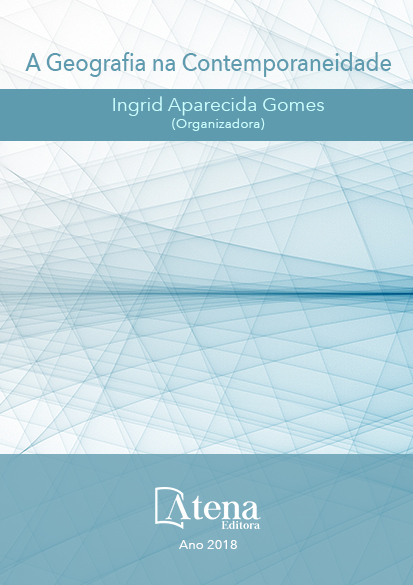
PRODUÇÃO, PATRIMÔNIO E IDENTIFICAÇÃO TERRITORIAL NA AGRICULTURA FAMILIAR: A AGROECOLOGIA E ALTERAÇÃO DAS RELAÇÕES ENTRE OS SUJEITOS
O território é o espaço de articulação
e de estratégias de desenvolvimento. Nele
ações da própria sociedade, organizações nãogovernamentais,
entidades privadas e políticas
públicas visam consolidar potencialidades e
especificidades histórico-culturais e naturais.
O estudo investiga como a produção de
geleias se tornaram um diferenciador de
gênero, contribuíram para identificação
territorial, a valorização do patrimônio cultural e
contribuíram para a alteração na autopercepção
dos membros da Associação de Produtores
Agroecológicos Semente do Futuro (APASF).
Para tal desenvolveu-se um estudo de caso de
natureza qualitativa com abordagem etnográfica.
Os dados coletados no ano de 2016 e 2017
e adensados no primeiro semestre de 2018,
foram obtidos recorrendo-se a observação
participante e entrevistas semiestruturadas com
10 membros (4 homens e 6 mulheres) desta
Associação. Os mesmos foram analisados
utilizando os procedimentos da Análise do
Discurso. A análise dos dados evidenciou que
a produção agroecológica de geleias na APASF
promove a identificação territorial e valorização
do patrimônio natural, à medida que foram
valorizados os conhecimentos transmitidos
por gerações e ao mesmo tempo, as famílias
manifestam sentimento de pertencimento e
de identificação com seus espaços de origem.
Além disso, constatou-se que há a agregação
de valor monetário e simbólico à produção.
Verificou-se que além da renda gerada, as
geleias promoveram a visibilidade do trabalho
feminino e as mulheres passaram a atuar
também na esfera produtiva, ocasionando certo
nível de equidade de gênero nestas famílias.
Ademais, por transitarem na esfera pública,
houve mudanças na forma como elas e eles
percebem o trabalho feminino, gerando uma
melhora na autoestima e valorização do seu
trabalho.
PRODUÇÃO, PATRIMÔNIO E IDENTIFICAÇÃO TERRITORIAL NA AGRICULTURA FAMILIAR: A AGROECOLOGIA E ALTERAÇÃO DAS RELAÇÕES ENTRE OS SUJEITOS
-
DOI: 10.22533/at.ed.18618211216
-
Palavras-chave: Agroecologia; Patrimônio cultural; Gênero; Renda.
-
Keywords: Agroecology; Cultural heritage; Genre; Income.
-
Abstract:
Territory is the space of articulation
and development strategies. In it actions of the society itself, non-governmental
organizations, private entities and public policies aim to consolidate historical and
cultural potential and specificities. The study investigates how the production of jellies
became a gender differentiator, contributed to territorial identification, the valuation of
cultural heritage and contributed to the alteration in the self-perception of the members
of the Association of Agroecological Producers Seed of the Future (APASF). For that, a
qualitative case study with ethnographic approach was developed. The data collected
in the year 2016 and 2017 and densified in the first half of 2018 were obtained by means
of participant observation and semi-structured interviews with 10 members (4 men
and 6 women) of this Association. They were analyzed using the Discourse Analysis
procedures. The analysis of the data showed that the agroecological production of jams
in APASF promotes the territorial identification and valorization of the natural heritage,
as the knowledge transmitted by generations has been valued and at the same time,
families manifest a sense of belonging and identification with their spaces source. In
addition, it was verified that there is the aggregation of monetary and symbolic value
to the production. It was verified that in addition to the income generated, the jellies
promoted the visibility of the female work and the women began to act also in the
productive sphere, causing a certain level of gender equity in these families. In addition,
because they transited in the public sphere, there were changes in the way they and
they perceive the feminine work, generating an improvement in the self-esteem and
valorization of their work.
-
Número de páginas: 15
- José Rolando Dupuy Parra


